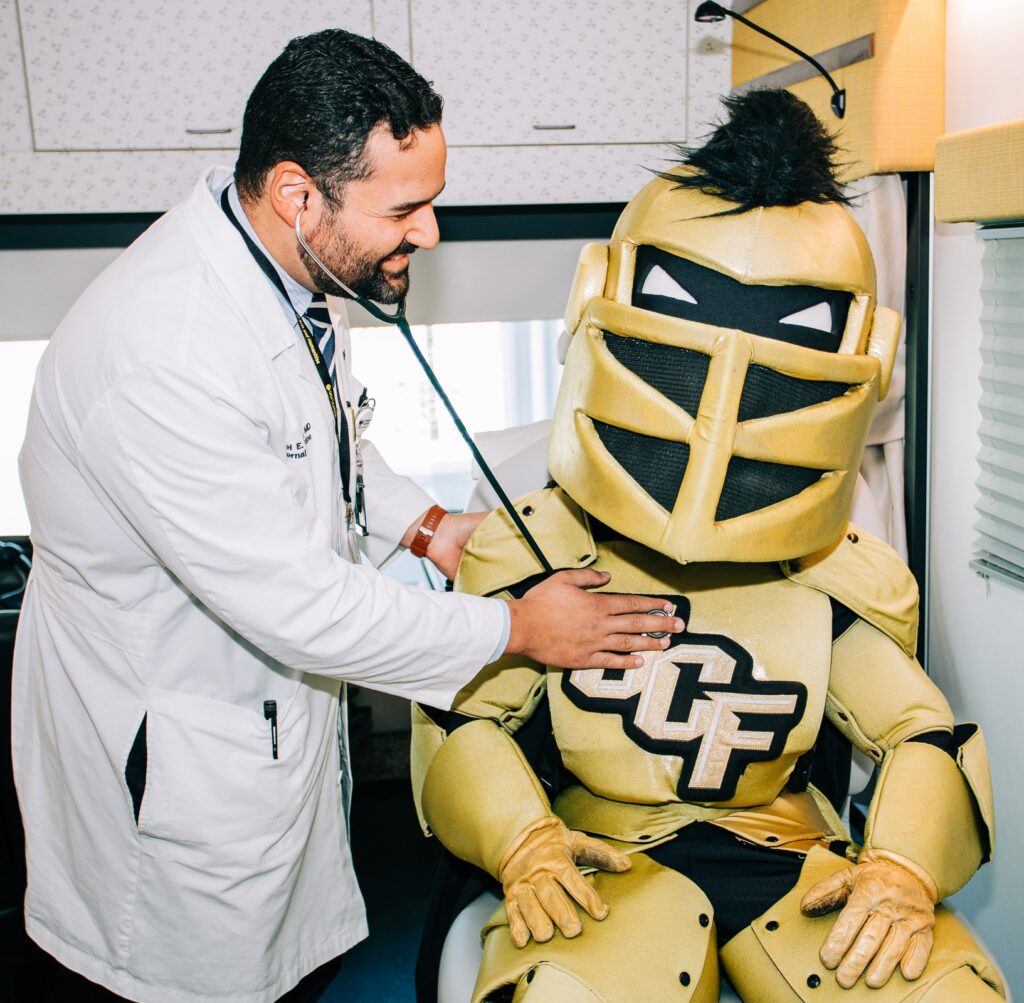September is Cholesterol Awareness Month so we turned to Dr. Ariel Mejia, medical director at UCF Health Faculty Physician Practice, for ways you can help lower your cholesterol. Dr. Mejia is a board-certified internal medicine specialist who provides care to patients across the community, in addition to being an assistant professor of medicine at the UCF College of Medicine.

He says diet plays a key role in high cholesterol. But the “cholesterol bad guys” aren’t just eggs and fatty steaks. Highly processed, sugary foods – like breakfast cereal, snack cakes and cookies – also contribute to elevations in cholesterol. In fact, Dr. Mejia says, patients can often be misled into thinking that prepackaged “low fat” foods and snacks are healthy. Yes, these foods may be lower in fat and contain no cholesterol, but they can be high in simple sugars and low in fiber. “These foods are designed to keep you snacking,” he warns. “Excess sugar in the body is turned into triglycerides, and these in turn stimulate the creation of new LDL particles.”
About 120 million American adults have cholesterol higher than 200, according to the CDC.
Dr. Mejia’s advice: “Eat foods that are as close as you can get to how they appear in nature. Foods you can pick off a tree or pull from the ground.” You don’t have to drive all over town to find a specialty market. You can buy unprocessed fresh or frozen fruits and vegetables (no sauces) at any grocery store. “Choose fibrous greens,” he said. “Spinach is a superfood, kale and I am always a big fan of broccoli.”
If you are a meat eater, choose leaner cuts of beef and pork. Eat more chicken (without skin) and fish. But Dr. Mejia says the latest research has found that heart disease doesn’t come from just eating high fat foods. Inflammation plays a key role in cardiac disease – and other lifestyle-related diseases like Type 2 diabetes, obesity and even autoimmune conditions. Highly processed sugary foods (like those with high fructose corn syrup) lead to insulin spikes and insulin resistance, which alongside high LDL cholesterol contribute to inflammation and formation of plaque inside vital arteries.
The second step in reducing cholesterol is exercise. Work up to 150 minutes of moderate intensity exercise a week, Dr. Mejia advises. Start with 30 minutes a week – a brisk, 10-minute walk three days a week. Then work up to 60 and 90 minutes and increase from there.
“Choose fibrous greens. Spinach is a superfood, kale and I am always a big fan of broccoli.” Dr. Ariel Mejia
“Lowering cholesterol boils down to two recommendations,” he says. “Fix the diet and exercise. They’re milquetoast but they hold true.”
Some people may be genetically predisposed to have high cholesterol, and if lifestyle changes don’t lower their levels, your physician may consider treatments such as prescribing statins. “But for the vast majority of people, changing how you eat and exercise can make a huge difference,” Dr. Mejia said.
UCF Health Faculty Physician Practice has two locations – in East Orlando, just blocks from the main UCF campus, and in Lake Nona. For more information or to make an appointment, visit https://ucfhealth.com/